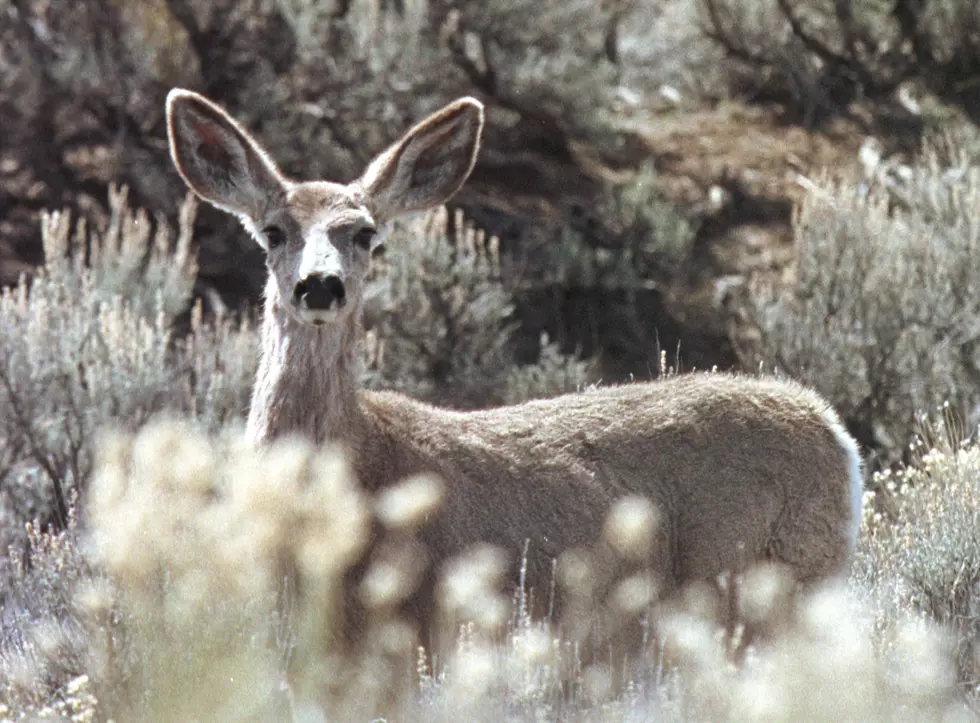
Washington Budget Bill Contains Wildfire Money
WASHINGTON (AP) — A spending bill slated for a vote in Congress includes a bipartisan plan to create a wildfire disaster fund to help combat increasingly severe wildfires that have devastated the West in recent years.
The bill sets aside more than $20 billion over 10 years to allow the Forest Service and other federal agencies end a practice of raiding non-fire-related accounts to pay for wildfire costs, which approached $3 billion last year.
Western lawmakers have long complained that the current funding mechanism — tied to a 10-year average for wildfires — makes budgeting difficult, even as fires burn longer and hotter each year.
The new plan sets aside $2 billion per year — outside the regular budget — so officials don't have to tap money meant for prevention programs to fight wildfires.
"Common sense has finally prevailed when it comes to how the Forest Service pays to fight record-breaking forest fires that devastate homes and communities in Oregon and the West," said Sen. Ron Wyden, D-Ore., who helped broker the compromise with Sens. Maria Cantwell, D-Wash., and Mike Crapo, R-Idaho. GOP Reps. Mike Simpson of Idaho and Cathy McMorris Rodgers of Washington also played key roles, along with other lawmakers from both parties.
The Western lawmakers have been fighting for years to end "fire borrowing," a practice they say devastates rational budgeting for the Forest Service and other agencies.
"This long-overdue, bipartisan solution to the madness of 'fire borrowing' will at last treat these infernos like the natural disasters they are, with the benefit that millions of dollars will now be liberated each year for essential wildfire prevention," Wyden said in a statement.
The wildfire deal "puts an end to fire-borrowing and is a start to giving the Forest Service the predictable resources they need to reduce hazardous fuels" such as small trees and underbrush that cause and exacerbate wildfires, Cantwell said.
"This funding boost will allow the Forest Service to prioritize work in areas closest to communities, in order to save lives and reduce the risk of property damage, while still protecting essential public lands and existing environmental laws," said Cantwell, the top Democrat on the Senate Energy and Natural Resources Committee.
The measure establishes a contingency account through 2027, with annual deposits starting at $2.1 billion and increasing to $2.9 billion. Money from the account would only be used after funds from usual firefighting accounts are exhausted.
Wildfires have burned across dried-out Western forests and grassland in recent years, causing billions of dollars in damage in California, Oregon and other states. The Forest Service and Interior Department spent more than $2.7 billion last year fighting fires — the most expensive wildfire season on record.
The budget deal includes $100 million for fire prevention projects and recreation programs and enables utilities to work with the Forest Service to prevent trees from touching power lines and starting wildfires.
Simpson, who chairs an Appropriations subcommittee on energy and water development, called the wildfire fund one of the most significant pieces of legislation he has worked on in Congress. The concept is simple, he said: Treat catastrophic wildfires like other natural disasters.
"Fire borrowing was intended to be an extraordinary measure, but as fire seasons have grown more destructive it has become common practice — and has created a devastating cycle that prevents agencies from doing needed hazardous fuels removal or timber harvests, leading to worse fires," he said.
More From K2 Radio








